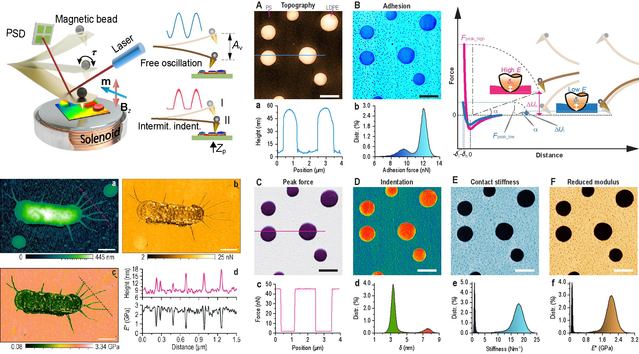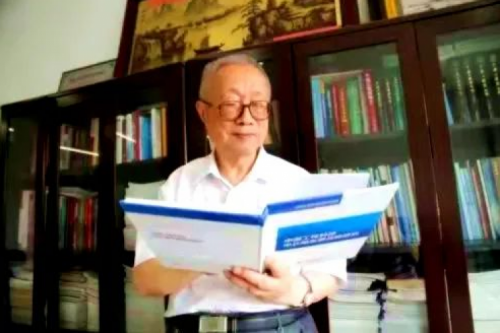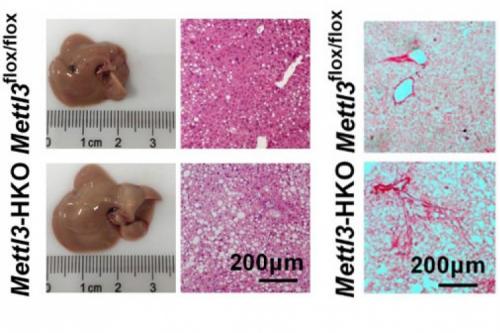Reported by: Wang Ji
Translated by: Sun Jianyao
Edited by: D. Parker
Date: 2017-12-12
Prof. Xie Hui’s research group from the HIT State Key Laboratory of Robotics and Systems has made great progress in nanomechanical measurement imaging research. Entitled “Broad modulus range nanomechanical mapping by magnetic-drive soft probes”, the paper has been published in the internationally famous journal Nature Communications. It is the result of independent research by HIT.
Prof. Xie Hui's research team put forward a new method of nanomechanics imaging -- using magnetic-drive peak forces to modulate an atomic force microscope. This led to the development of a new imaging system. The method solves the problem of nanomechanical scanning imaging of multi-component and large-modulus composite materials by broadening the range of single-probe modulus measurements to more than four orders of magnitude. This is two orders of magnitude higher than those of existing methods. It has achieved the modulation of peak force for the softest probe available commercially (6 pN / nm) in a liquid environment and solved the problem in scanning imaging of nanomechanical properties of very soft materials in a liquid environment. The results provide the method, technology and system support for the nanomechanics measurement imaging of nanomaterials and biomaterials, especially multi-component materials under multi-environments. This will provide a new method for nanomechanics measurement imaging for the next-generation AFM.
As a cutting-edge interdisciplinary field, nanomechanics aims to study the fundamental mechanical properties of physical objects (systems) at the nanoscale. It is a key research issue in the fields of nano-tribology, nano-fluidics and nano electro mechanical systems. It provides theoretical support for the design and manufacture of nanometer devices (systems). Research on nanomechanics has contributed to the discovery of pathogenesis at the cellular and molecular level and guides the screening and development for new drugs. Nanomechanical measurements can also help to reveal special mechanical properties of nanomaterials and promote the research of new high-performance materials.
Supported by the National Science Foundation For Distinguished Young Scholars of China, Prof. Xie has dedicated a great deal of time to the research of theory, technology and systems of micro-nano robotics. Faced with the demand for micro-nano manipulation, assembly, test and characterization in the fields of micro and nano-fabrication and nanomedicines, he has made great breakthroughs in many key technologies. He has built an innovative micro-nano robot system which reveals the interaction mechanism of micro-nano interfaces. The research provides methods and platforms for the characteristic tests and characterization of novel nanomaterials, structures, devices and biological cells.
Link:https://www.nature.com/articles/s41467-017-02032-y





